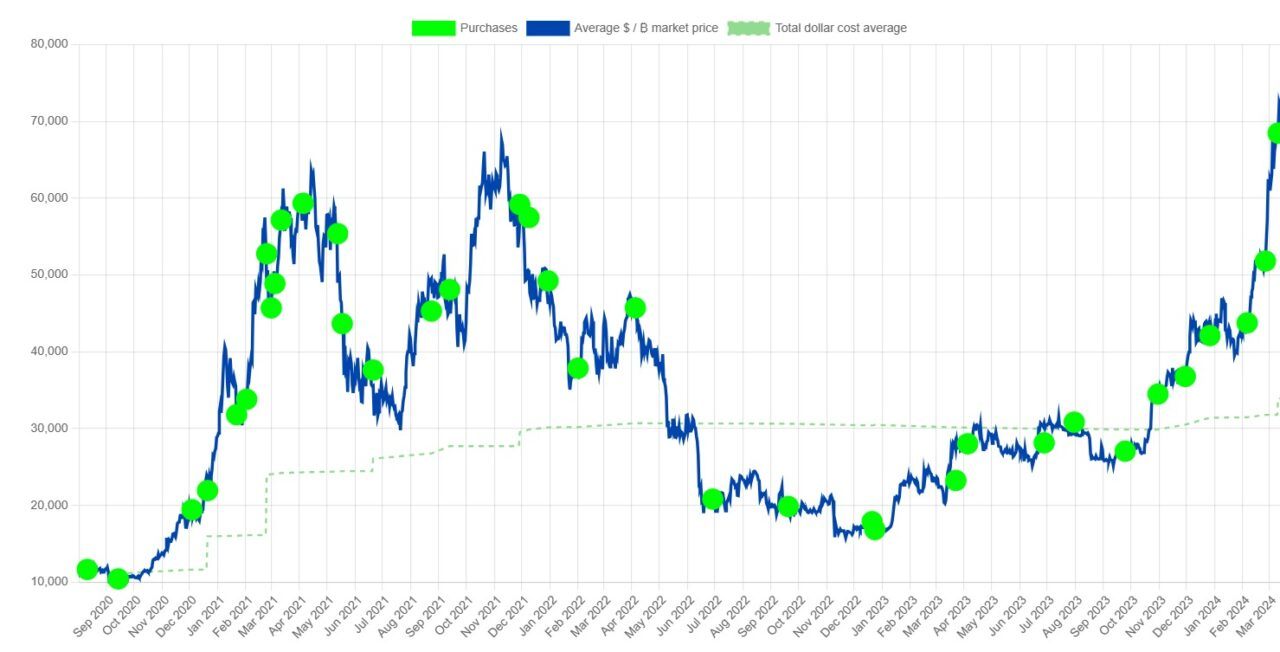Nasdaq-listed firm MicroStrategy, known for its aggressive bet on the flagship cryptocurrency Bitcoin ($BTC) has seen its stock price surge roughly 140% year-to-date, a meteoric rise that has come at a steep cost for short sellers who have wagered against the company, incurring an estimated $3.3 billion in losses so far in 2024, per S3 Partners.
MicroStrategy’s strategy of accumulating Bitcoin started in 2020, and has proven remarkably successful. The company has consistently added to its digital currency stash, which currently stands at 205,000 $BTC, valued at nearly $14 billion. This week, the firm executed one of its largest single purchases ever, acquiring an additional 12,000 Bitcoin.

Further gains in MicroStrategy’s stock price could exacerbate the pain for short sellers, according to Business Insider as if they are forced to buy back shares to cover their losses, they would inadvertently add upward pressure on the stock price, creating a potential “short squeeze.”
The price of Bitcoin surged to a new all-time high above $73,400 this month amid growing demand from spot Bitcoin exchange-traded funds (ETFs) launched in the United States, and ahead of its upcoming halving event.
The halving is set to cut the coinbase reward miners receive per block found in half, effectively slashing the available supply on the market at a time in which demand is seemingly accelerating. Halving have historically seen $BTC’s price surge in the months that followed them.
MicroStrategy, now openly identifying itself as a “Bitcoin Development Company,” could keep on buying Bitcoin. Its Exectuvie Chairman and Co-Founder, Michel Saylor, has dismissed concerns about increased competition for acquiring Bitcoin and suggests the firm is well-positioned to benefit from the digital transformation of capital from traditional, analog systems to the digital economy.
Saylor passionately argued that Bitcoin has emerged as a trillion-dollar asset class, comparing its significance to that of major technology companies like Apple, Google, and Microsoft.
However, he noted that Bitcoin, unlike these companies, represents an entire asset class capable of accommodating vast amounts of capital, and added he sees it competing against traditional stores of value like gold, the S&P 500, and real estate, projecting that capital will continue to migrate from these asset classes into Bitcoin due to its technical superiority.
Featured image via Unsplash.
 cryptoglobe.com
cryptoglobe.com
